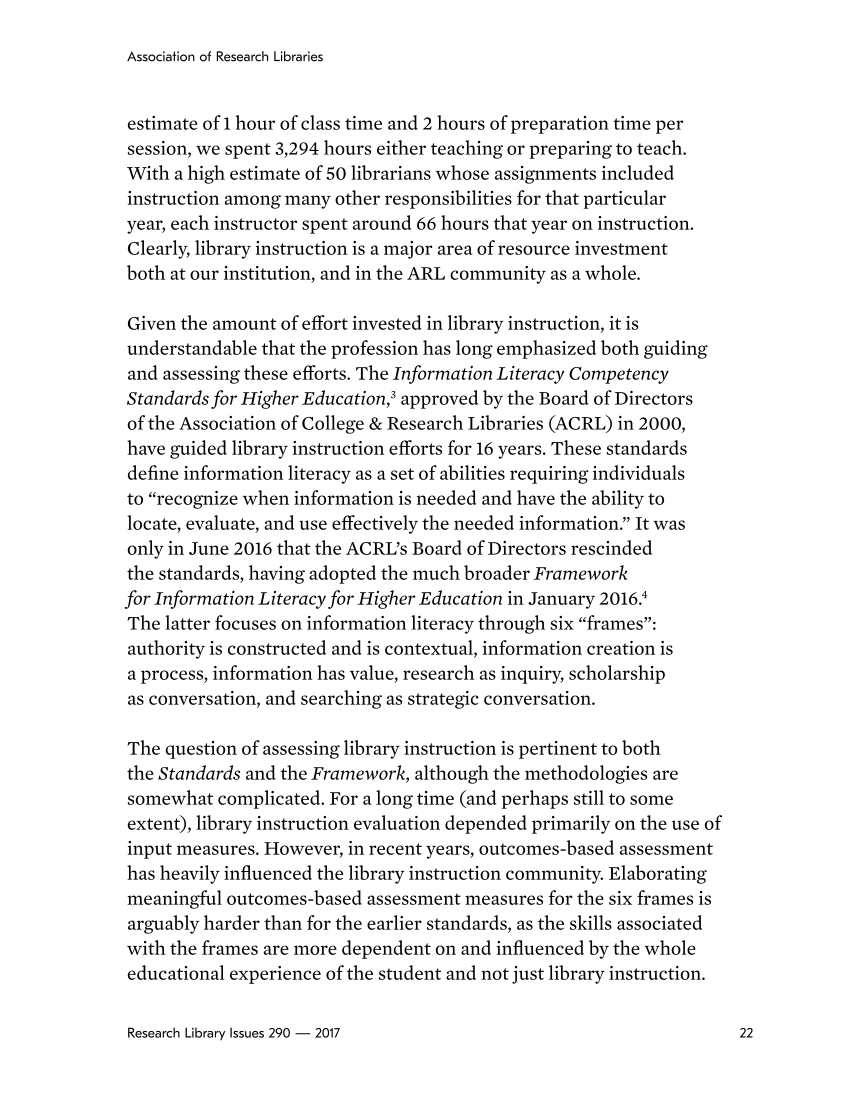22 Association of Research Libraries Research Library Issues 290 — 2017 estimate of 1 hour of class time and 2 hours of preparation time per session, we spent 3,294 hours either teaching or preparing to teach. With a high estimate of 50 librarians whose assignments included instruction among many other responsibilities for that particular year, each instructor spent around 66 hours that year on instruction. Clearly, library instruction is a major area of resource investment both at our institution, and in the ARL community as a whole. Given the amount of effort invested in library instruction, it is understandable that the profession has long emphasized both guiding and assessing these efforts. The Information Literacy Competency Standards for Higher Education,3 approved by the Board of Directors of the Association of College & Research Libraries (ACRL) in 2000, have guided library instruction efforts for 16 years. These standards define information literacy as a set of abilities requiring individuals to “recognize when information is needed and have the ability to locate, evaluate, and use effectively the needed information.” It was only in June 2016 that the ACRL’s Board of Directors rescinded the standards, having adopted the much broader Framework for Information Literacy for Higher Education in January 2016.4 The latter focuses on information literacy through six “frames”: authority is constructed and is contextual, information creation is a process, information has value, research as inquiry, scholarship as conversation, and searching as strategic conversation. The question of assessing library instruction is pertinent to both the Standards and the Framework, although the methodologies are somewhat complicated. For a long time (and perhaps still to some extent), library instruction evaluation depended primarily on the use of input measures. However, in recent years, outcomes-based assessment has heavily influenced the library instruction community. Elaborating meaningful outcomes-based assessment measures for the six frames is arguably harder than for the earlier standards, as the skills associated with the frames are more dependent on and influenced by the whole educational experience of the student and not just library instruction.









































